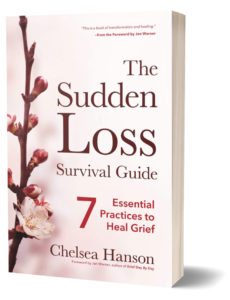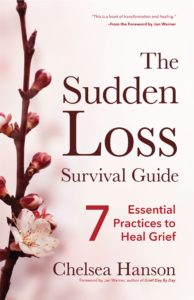How to Reconnect to Your Spirit
 If you desire to begin healing your grief, connecting to your inner, spiritual self is essential. You may have become disconnected from your spirit for a variety of reasons. Your parents may have modeled separation from their true selves, your family may have had generations of spiritual detachment, and Western society does not teach connection to our spiritual selves.
If you desire to begin healing your grief, connecting to your inner, spiritual self is essential. You may have become disconnected from your spirit for a variety of reasons. Your parents may have modeled separation from their true selves, your family may have had generations of spiritual detachment, and Western society does not teach connection to our spiritual selves.
As you grew from a child, you may have become disengaged from your spiritual or authentic self to form a false, conditioned self. This occurs to protect yourself as you navigate the world to fit in with societal expectations. Recall how you acted when you were a young teenager to fit in with your friends or meet Mom or Dad’s needs. This false, conditioned self is not your real, true self.
The consequences of being separated with your spirit may include:
● Fear and anxiety
● Lack of trust in the future
● Depression and hopelessness
● No sense of purpose or meaning in life
● Feeling alone
● Addictions
You may experience these symptoms in ordinary, daily living, but they may become more prominent when grieving. If you are operating from your conditioning, this will cause additional pain because this false self mirrors many of the untrue cultural messages about how to handle grief (quickly, quietly, and alone.)
The feelings of guilt and shame, which are produced from your conditioned self, make the grieving process more difficult. Instead, when you are operating from your authentic self, you will know what is right for you and can allow your pure, organic feelings of sorrow, loss, and heartbreak to be released naturally. You can grieve in your own way.
Exploration of your spiritual background will support the process to connect to your authentic self. When someone important dies, we naturally explore our spirituality. You may begin to question everything. Your beliefs may change dramatically due to anger, confusion, and disbelief. You may reason that you did everything correct and played by all the rules, yet the loss of this magnitude still occurred.
Loss can take you on a journey to search for answers that you may or may not find. Over time and with active grieving, your beliefs will evolve, and you may integrate an understanding of loss that works in your life.
Try this Grief Healing Action: Understanding Your Spiritual Biography
 Exploration of your spiritual background will support the process to connect to your authentic self to aid healing. Take 15 to 20 minutes and answer the following questions to compose your spiritual biography:
Exploration of your spiritual background will support the process to connect to your authentic self to aid healing. Take 15 to 20 minutes and answer the following questions to compose your spiritual biography:
1. What was your first exposure to spirituality? Was it positive or negative?
2. What has your spiritual exploration been like over the years – strong and steady or sporadic? Was this helpful or not?
3. How do you personally define spirituality?
4. What were significant turning points in your spiritual journey? (A turning point may occur when a beloved person dies. You may begin searching for answers and may look to a higher power for meaning.)
5. How have your spiritual beliefs affected your life?
6. How have your beliefs changed and evolved over time?
7. Who are your spiritual role models? What draws you to them?
8. What are the significant spiritual experiences you’ve had in your life — times you’ve felt close, connected, and supported by Spirit.
9. How have you cultivated and strengthened your spirituality over time? How will you continue?
I’d love to hear about your personal discoveries after reflecting upon these questions.
And for more support in restoring your spirit, check out my upcoming book, The Sudden Loss Survival Guide.
This guide serves as an indispensable and compassionate guide for those who’ve experienced a life-changing loss and are in the healing process to find peace and hope.
We heal together,
Chelsea
Praise for the Sudden Loss Survival Guide – 7 Essential Practices to Heal Grief
“There is no guesswork in The Sudden Loss Survival Guide.
Chelsea clearly states this is a book of transformation and healing. And it doesn’t stop there.
You’re offered practical tools for healing sorrow while not turning away from the raw pain of grief and the profoundness of your loss. And you’re guided gently, yet steadily, through a path of healing.
But, like me, you may feel resistance to healing. I hold my grief close, as a measure of my love. I want grief to have a home in my heart as I live. I want to make my husband’s life matter more than his death, and I hold on tightly to him even now.
Yet I still feel comfort, rather than resistance, as I read the pages of this book. I am accepted for who I am as a griever without judgment, with both acknowledgment and understanding. I am surrounded with solace and hope as I move forward with my husband’s love ever present.”
―Jan Warner, Author of Grief Day by Day


Leave a Reply